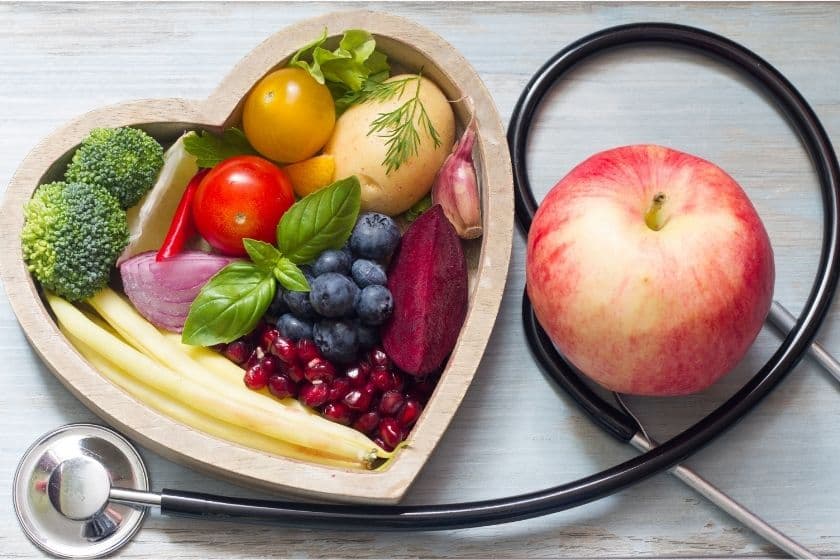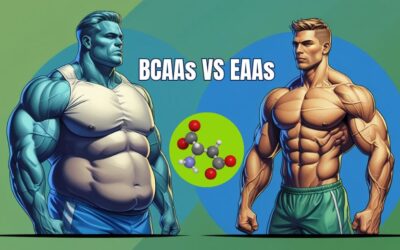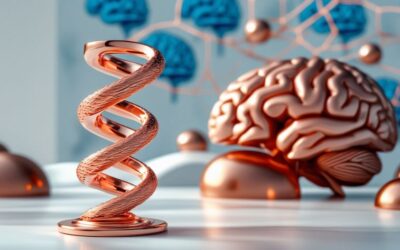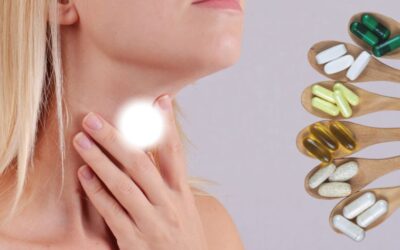Heart disease has truly become a pandemic over the last few years, hitting all demographics. Personally, I found out the hard way about the importance of nutrition for heart health when my 17 year old son, who was training for Nationals in Crew, started experiencing major heart palpitations.He was a healthy boy, never sick, and a strong athlete, so why was he having heart issues?
His hearts’ “electrical system” was out of balance.
What Can Be Causing Heart Disease?
Insulin Resistance
Insulin resistance is a condition in which the body’s cells become less responsive to the effects of insulin, a hormone that regulates blood sugar.
According to Dr. Robert Lustig, “Insulin resistance at the liver leads to Type II Diabetes; insulin resistance at the heart leads to heart disease.”
This resistance can lead to elevated blood sugar levels and is often associated with metabolic syndrome and type 2 diabetes. Insulin resistance is closely linked to heart disease through various mechanisms:
- Increased Risk of Type 2 Diabetes: Insulin resistance is a primary factor in the development of type 2 diabetes. Individuals with diabetes have an elevated risk of cardiovascular complications, including heart disease.
- Abnormal Lipid Levels: Insulin resistance is often associated with dyslipidemia, characterized by high levels of triglycerides and low levels of high-density lipoprotein (HDL or “good” cholesterol). This lipid profile is a risk factor for atherosclerosis and coronary artery disease.
- Inflammation: Insulin resistance is linked to chronic low-grade inflammation, which plays a role in the development and progression of atherosclerosis and other cardiovascular conditions.
- Endothelial Dysfunction: Insulin resistance can contribute to dysfunction in the endothelium, the inner lining of blood vessels. This dysfunction is associated with impaired blood vessel relaxation and increased risk of heart disease.
- Hypertension: Insulin resistance is often accompanied by high blood pressure, which is a major risk factor for heart disease.
- Central Obesity: Insulin resistance is associated with the accumulation of visceral fat around organs, known as central obesity. This type of fat distribution is particularly linked to an increased risk of cardiovascular disease.
- Prothrombotic State: Insulin resistance may contribute to a prothrombotic (promoting blood clotting) state, increasing the risk of blood clots that can lead to heart attacks and strokes.
- Impaired Nitric Oxide Production: Insulin resistance can reduce the production of nitric oxide, a molecule that helps regulate blood vessel tone. Reduced nitric oxide levels are associated with impaired vasodilation and increased cardiovascular risk.
Poor Liver Health and Heart Health
Liver health is closely connected to heart health, and the two organs often influence each other. Several factors highlight the relationship between liver health and heart health:
- Metabolism and Fat Processing: The liver plays a central role in metabolizing fats. An unhealthy liver may lead to an accumulation of fat in the liver, a condition known as non-alcoholic fatty liver disease (NAFLD). This excess fat can contribute to insulin resistance and an increased risk of cardiovascular disease.
- Inflammation: Both liver and heart diseases can involve inflammation. Chronic inflammation in the liver (as seen in conditions like hepatitis or NAFLD) may contribute to systemic inflammation, impacting the cardiovascular system and potentially increasing the risk of heart disease.
- Cholesterol Levels: The liver is involved in regulating cholesterol levels in the body. Liver dysfunction can disrupt this regulation, leading to imbalances in cholesterol levels, which are a risk factor for heart disease.
- Blood Clotting Factors: The liver produces proteins involved in blood clotting. Liver disease can affect the production of these clotting factors, potentially influencing the risk of blood clots and cardiovascular events.
- Hormone Regulation: The liver helps regulate hormones, including those that affect the cardiovascular system. Disruptions in hormonal balance due to liver dysfunction may impact heart health.
-
- Circulation: The liver is part of the circulatory system, receiving blood from the digestive organs. Changes in liver function can affect blood flow and impact overall circulation, which is crucial for heart health.
- Shared Risk Factors: Both liver disease and cardiovascular disease share common risk factors, such as obesity, diabetes, and metabolic syndrome. Addressing these risk factors is essential for the health of both organs.
Spike Protein and Heart Health
Experts have linked an increase in heart attack or stroke risk for those exposed to the Spike Protein, especially for those who already have an underlying heart condition.
The studies additionally revealed that when exposed to the infection, macrophages release cytokines—specifically, inflammatory signaling proteins such as interleukin-1 beta and interleukin-6. These cytokines were identified as having connections to heart attacks, indicating their involvement in promoting a persistent immune response.
Arrhythmia and Heart Palpitations
Your body and your heart are “electric!”
A heartbeat is the result of your heart’s cardiac pacemaker sending electrical impulses prompting contractions in the heart muscle to make the muscle “pump.”
These contractions push blood to the lungs creating oxygen to carry to the cells throughout the body and return it to the heart; then it starts again.
At the cellular level, you are getting an exchange of electrolytes, specifically potassium, calcium, sodium, and magnesium, which regulate the rhythm of the heart. The balance of the electrolytes, specific minerals, and the difference in pH levels cause this electrical charge and balance to help the heart function in that rhythmic manner.
Without sufficient electrolytes, you can experience missing heart beats, extra beats or even the halting of the heart beat. This is what was happening with my son; he was low on electrolytes due to his excess of strenuous exercise and training.
The following are what could cause heart palpitations:
- Digestion. When you eat, you can experience palpitations due to a sluggish gallbladder putting pressure on the bile ducts, creating consequential bloating. Because this area is so close to the cardiac system, it can lead to palpitations.
- Low Potassium. This is the main electrolyte that controls the pacemaker. This can be caused by a diuretic, diarrhea, antacids, low vitamin D and a diet absent in potassium. High insulin levels and blood sugar can deplete the body of potassium as well. Electrolytes including potassium are found in green vegetables, avocados, and animal proteins. Moreover, grains and high carb foods deplete the body of these nutrients as well. As they cause higher insulin and eventually insulin resistance, your body’s ability to absorb nutrients is compromised.
- Ph is too alkaline or too high. We have been told alkalinity is good for the body. The reality is your body has different pH levels in the blood, the urine, the stomach, and saliva. It if were all the same, you would die. It is true that an alkaline diet can help balance the acidity from stress and other factors. However, If your blood is above 7.45, and your body is excessively alkaline, then the minerals don’t move that well through the heart and the body. Alkalinity can be caused by low potassium, high cortisol from stress, and low HCL, which is the stomach acid that breaks down food.
- Alcohol. Alcohol may affect the heart in multiple different ways:
- Increased Heart Rate: Alcohol is a known vasodilator, meaning it widens blood vessels, which can lead to a drop in blood pressure. In response, the heart may beat faster to compensate for the decreased blood pressure, resulting in palpitations.
- Arrhythmias: Alcohol can disrupt the normal electrical signaling in the heart, potentially leading to arrhythmias (irregular heartbeats). This can manifest as palpitations, and in some cases, it can be more serious.
- Dehydration: Alcohol is a diuretic, meaning it increases urine production and can lead to dehydration. Dehydration can affect the balance of electrolytes in the body, including potassium and magnesium, which are crucial for proper heart function. Imbalances in these electrolytes can contribute to palpitations.
- Caffeine. Caffeine stimulates the central nervous system, leading to an increased heart rate, and in some cases, it can disrupt the normal electrical activity of the heart, leading to arrhythmias. Furthermore, caffeine is a diuretic like alcohol, and can affect the balance of electrolytes in the body, including potassium and magnesium.
- Hyperthyroid. Hyperthyroidism is a condition where the thyroid gland produces an excess of thyroid hormones, which regulate metabolism, and they can have various effects on the cardiovascular system. They can stimulate the heart, increasing heart rate, which can lead to palpitations, chest discomfort. It can also lead to an increase in blood pressure, arrhythmias, and an increase in blood volume that may lead to shortness of breath and fatigue.
Coronary Artery
A serious problem that could occur is the clogging of the coronary artery. The artery becomes inflamed in the wall of the artery. It will start collecting cholesterol, protein and calcium to use as a band aid to protect the inflamed artery.
Dietary cholesterol is NOT the problem; the inflammation from sugar, grains and cereals cause the “wound” and the cholesterol is just trying to put a bandaid on it. This will start limiting the blood flow and could then create a clot. Eventually the clot could be dislodged. What causes oxidation and inflammation are high insulin levels, not fats, and a lack of nutrients. The nutrients necessary are the antioxidants to combat the oxidation or inflammation.
To reduce your risk of a Coronary Artery:
- You need the B complex vitamins, Vitamin E, Potassium, Magnesium, and Sodium. These nutrients are found in vegetables and animal protein.
- Eliminate foods that spike blood sugar and insulin. Those include breads, cereal, rice, sugar, and processed foods. Not only do these foods spike insulin, but they also are referred to as “anti-nutrients” as they strip the body from those vitamins and minerals.
Heart Muscle
Vitamin E increases oxygen in the heart itself. If you are deficient in vitamin E and the B vitamins, your heart has to work harder and eventually can cramp up. As a result, you may experience angina or a heart attack. Furthermore, vitamin E protects the lining of the artery. Once again, eating refined grains can strip you of those necessary nutrients.
What Are the Symptoms of Heart Disease Risk?
- Chest Pain
- Left Arm Pain
- Left Jaw and shoulder pain
- Cold Sweats
- Chronic coughing when you lay down
- Nausea
- Swelling in the lower legs, especially on the left
- Pitting Edema
- Fainting
- Lack of Energy Upon Exertion
- Heavy Legs when you are climbing stairs
- Ascites or protruding belly
- Visceral Fat- fat around the organs in the belly
- High Triglycerides
What are the Heart Health Tests Available?
If you believe you are at risk of heart disease, you need the following blood work:
- Coronary Artery Calcium Test. It measures the amount of calcium in the coronary artery around the heart. You want it to be zero.
- A1C. A1C is a blood test for type 2 diabetes and insulin resistance. It measures your average blood glucose, or blood sugar, level over the past 3 months. The refined sugar and carbs, even “healthy” grains and gluten free breads, increase blood sugar and cause inflammation throughout the body including the heart. The damage it causes is what cholesterol is used to “patch” up. Cholesterol isn’t the issue. Cholesterol is the “fireman” at the scene of a “fire;” it is the sugar and processed carbs that started the “fire.”
- VLDL and Triglycerides. These are much more important to look at than LDL and HDL for cholesterol. Your body needs cholesterol to make its hormones; that is why your body will produce the essential cholesterol that isn’t taken in through dietary sources. Triglycerides are an indicator that you have too many inflammatory fats and sugars in your blood.
Supplements to Support Heart Health
- Accelerated Diet Cleanse. This comprehensive cleanse not only aids in easy intermittent fasting by suppressing your appetite and curbing your craving for sugar and refined carbs, but helps cleanse the liver daily, burn the dangerous liver fat and visceral fat, and help you focus on the foods rich in electrolytes and minerals needed for heart health. Furthermore, the cleanse flushes out gallstones and gallbladder sludge which takes pressure off the cardiac system. Lastly, it will help lower your bad cholesterol and triglycerides.
- Accelerated Fast®. Accelerated Fast®, which is part of the Accelerated Diet Cleanse, will stop the cravings for the foods that increase insulin resistance and cause heart health decline, including carbs, processed foods, and sugar. It flips you into ketosis and your body learns to turn your own body fat stores into a clean burning ketone-based fuel system. The carbs are leading to clogged arteries and clogged liver which puts pressure on the heart. Accelerated Fast® also de-fats the liver, improving liver function, insulin resistance, and reducing fatty liver. Accelerated Fast increases ATP production, which is true cellular energy, 18 times more than a carb-dependent diet. FATTY LIVER
- Acceleradine®. The thyroid regulates the heart, and hypothyroidism leads to heart disease. Because thyroid health is directly dependent on iodine, iodine supplementation has been shown to prevent heart disease. Additionally, iodine protects us from EMFs that can be damaging to all of our organs, including the heart.
- Accelerated Liver Flush Cleanse. The Liver Flush will flush gallstones and liver stones out of the body to help liver function improve and, in turn, improve heart health. It will help lower AST and ALT liver enzymes, replace damaged liver cells with healthy ones, eliminate toxins, improve metabolism and nutrient absorption, and improve the ACE2 receptor function compromised by the Spike Protein.
- Accelerated Ancient Salt®. There is no evidence suggesting that reducing high quality salt intake leads to a rise in heart failure or mortality rates. On the contrary, decreasing salt in your diet may contribute to increased all-cause mortality. Many individuals at risk of heart disease are already prescribed diuretics, which eliminate salt from the body. Approximately 25% of people often experience low sodium levels in the blood, rendering diuretics less effective. This can lead to a disproportionate retention of fluid to salt ratio, as the body struggles to circulate the denser fluid resembling molasses. Accelerated Ancient Salt® has a strong negative charge that helps pull out the positively charged toxins, parasites and undigested fats in addition to providing the needed electrolytes and minerals for heart health. It is pure, raw, and untreated without the microplastics that most salts contain.
- N1O1 Nitric Oxide Lozenges. NO is a potent vasodilator that helps keep arteries open and clean from plaque build up. Low nitric oxide production is associated with all major cardiovascular risk factors. N1O1 Nitric Oxide lozenges help:
- Increase the production of Nitric Oxide.
- Enhance the supply of oxygen and nutrients to cells.
- Support cardiovascular well-being.
- Aid in maintaining regular heart function.
- Improve healthy blood circulation and maintain optimal blood pressure.
- Facilitate optimal blood flow to the brain and various organs.
- Offer antioxidant assistance.
- Promote cognitive function and memory.
- Possibly alleviate erectile dysfunction.
Lifestyle Changes for Heart Health
- Fasting. Intermittent fasting reduces inflammation and supports ketosis, which is restorative to the heart. This takes the pressure off the digestive system and lets it reset, especially the gallbladder.
- Low Carb Diet. Sticking to a low carb diet puts less stress on the heart, liver, kidneys, and other organs. The sugar, carbs, and processed foods are what back up the liver, cause insulin resistance and heart disease.
- Eliminate Seed Oils. Vegetable oils are inflammatory and can cause liver and gallbladder issues, putting more pressure on the heart. Although these fats don’t have carbs in them, they create insulin resistance and inflammation at the cellular level. Incorporating healthy fats like olive oil, avocado oil and coconut oil are anti-inflammatory and promote heart health.
- Prioritize Wild Animal Protein. Prioritizing wild animal protein will stabilize blood sugar, provide the nutrients for heart health, and subsequently increase potassium.
- Exercise. Exercise benefits the heart in multiple ways and should be an integral part of a heart health protocol. It does so by strengthening the heart muscle, regulating blood pressure, improving blood flow to get oxygen and nutrients to the heart, raising HDL or “good cholesterol” and lowering LDL, maintaining healthy weight, improving blood sugar, reducing inflammation, improving heart rate variability, and reducing stress.
- Walking. You want to keep your stress low and increase oxygen flow into the heart, which walking can help you achieve. Furthermore, walking is great for your lymphatic system and puts you into a relaxed parasympathetic state
Sara Banta
Sara Banta is a Stanford University Graduate with a Degree in Economics and Psychology, and a certified Natural Supplement Expert & Graduate of the Institute for Integrative Nutrition. Sara is the Founder of Accelerated Health Products and host of the health & wellness podcast, Accelerated Health Radio.









